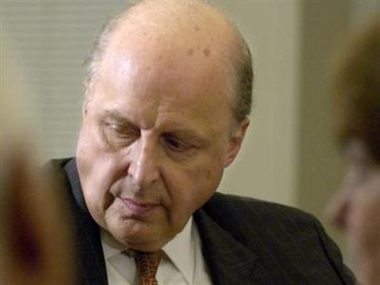Bush overhauls Iraq military team
(Reuters)Updated: 2007-01-06 08:50
WASHINGTON - US President Bush on Friday shuffled US military commanders for Iraq ahead of a policy shift on the war next week but faced resistance from Democrats to a proposal to increase troops there.
|
|
The shake-up among officials in charge of the unpopular war, including the nomination of former Baghdad envoy John Negroponte to be deputy secretary of state to beef up diplomatic efforts on Iraq, comes as the US death toll and sectarian violence continue to mount.
The top two Democrats in Congress, Senate Democratic leader Harry Reid and House of Representatives Speaker Nancy Pelosi, urged Bush in a letter to reject a contemplated troop increase in Iraq and begin a phased withdrawal within months.
"Adding more combat troops will only endanger more Americans and stretch our military to the breaking point for no strategic gain," they wrote.
And Illinois Democratic Sen. Barack Obama said he told the president during a White House meeting with lawmakers that a troop increase "was a bad idea."
Senators said Bush gave no indication he had definitely decided on a troop increase and the White House said he had not yet made up his mind. A troop increase was endorsed on Friday by Connecticut Sen. Joseph Lieberman and Arizona Republican Sen. John McCain
Elsewhere, one of Bush's closest Arab allies, Egyptian President Hosni Mubarak, joined criticism over the handling of Saddam Hussein's execution. He said the "barbaric" hanging had turned the ousted Iraqi leader into a martyr.
Looking ahead to implementation of his new Iraq plan, Bush began a shuffle of the US military's war leadership in order to carry out the policy.
He nominated Adm. William Fallon to replace Gen. John Abizaid as the head of US Central Command, in charge of US military operations in Iraq and Afghanistan.
He also replaced America's top commander in Iraq, Gen. George Casey -- a skeptic of troop increases -- with Lt. Gen. David Petraeus.
Petraeus was a top commander of the 2003 Iraq invasion and oversaw a new US military manual on fighting insurgencies that stresses understanding politics, ethics and local culture.
Casey would become the US Army chief of staff.
White House spokesman Tony Snow rejected a contention from Reid that Bush was changing commanders because they are not telling him what he wants to hear.
"Just flat inaccurate," Snow said.
In a White House ceremony, Bush announced Negroponte's appointment and cited his experience as ambassador to Iraq. He also nominated retired Adm. Mike McConnell to replace Negroponte as director of national intelligence.
OUTRAGE OVER EXECUTION
Another expected announcement is that Zalmay Khalilzad, the US ambassador to Iraq, will be nominated to be ambassador to the United Nations, US officials said.
Khalilzad, an Afghan-born Sunni Muslim, has irritated some of Iraq's now-dominant Shi'ites in his efforts to draw Saddam's fellow Sunnis from insurgency into politics.
Bush began overhauling his Iraq team in November when Defense Secretary Donald Rumsfeld resigned after Bush's Republicans lost control of Congress in elections dominated by war concerns.
As outrage grew among Sunni Arabs over an illicit video showing Shi'ite officials taunting Saddam on the gallows, Mubarak said international experts deemed the trial illegal and said he had asked Bush to postpone last Saturday's execution.
"The pictures of the execution were revolting and barbaric," Mubarak said in an interview with Israeli newspaper Yedioth Ahronoth.
Two of Saddam's aides also convicted for crimes against humanity will hang this week, officials said.
In neighboring Shi'ite Iran, influential cleric Ahmad Khatami told worshipers that Washington wanted to use Saddam's execution to stoke tensions between Shi'ite and Sunnis.
Democrats mull trying to cap Iraq troops levels
The Congress could possibly limit the number of US troops in Iraq by forcing the president to seek approval from lawmakers for additional deployments, a top Democratic senator said on Friday.
Assistant Senate Majority Leader Richard Durbin said that was just one of several options before Democrats, who took over control of both the House and Senate this week from Bush's Republicans.
Top Democrats, including Durbin, said the party would not seek to cut funding of troops already there because that could undermine their safety.
But with Bush considering an increase in the number of US forces in Iraq, Durbin told reporters he and fellow Democrats have discussed trying to cap the number there as a potential option.
Asked how, Durbin said, "It could be legislation that requires the president to come for congressional approval for troops over a certain level."
"I'm not telling you that is where we will end up, but there are a lot of things on the table," Durbin said after a closed-door meeting of fellow Democrats preparing for the new 110th Congress that convened on Thursday.
To pass such legislation in the Senate, Democrats would need the support of a number of Republicans. Democrats control the Senate, holding 51 of 100 seats. But 60 votes would be needed to end a possible procedural roadblock.
Durbin acknowledged bipartisan support would be needed, but said, "if you notice there are more and more Republicans who are starting to have second thoughts about the president's policy."
Earlier Friday, Senate Democratic leader Harry Reid and House of Representatives Speaker Nancy Pelosi wrote to Bush urging him not to deploy additional troops but rather begin a phased withdrawal.
Democrats intend to fan already mounting public opposition to the Iraq war next week with the first of a series of congressional hearings on Bush's prosecution of it.
|
||
|
||
|
|

